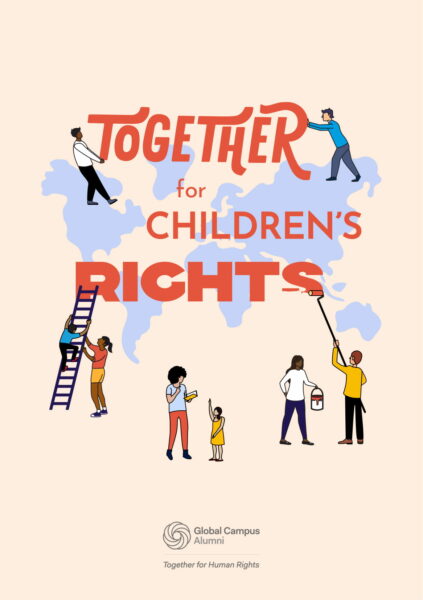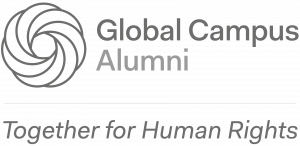Together for Children’s Rights
 The Global Campus has been in close cooperation with the Right Livelihood Foundation since 2019 to promote children’s rights worldwide. The GCA has been supporting these efforts through the work we do as an association.
The Global Campus has been in close cooperation with the Right Livelihood Foundation since 2019 to promote children’s rights worldwide. The GCA has been supporting these efforts through the work we do as an association.
Many of our alumni are working on advancing children’s rights, all over the globe, some working for governmental institutions, some for universities, some for NGOs. We asked some of them to comment on a right they feel strongly about or are working on every day. All rights in the Convention are of course important and indivisible but we wanted a more personal take on some of the articles.
Click HERE to read the entire content.
At the back of the leaflet, you can find the biographies of the alumni who participated in this project. The diversity of this group illustrates the power of this network and the impact it has on children’s rights.
Even if the current political climate and the news might demotivate us, we should continue our work and networking for the promotion of children’s rights. Together, we can make a difference. So, let’s continue to exchange, support each other, learn from each other, and write about our work in promoting and defending the rights of children all over the globe.
Design by Beatrice Bloomfield, Floating Studio / floatingstudio.net
#CRC30
30 years passed since world leaders adopted the Convention on the Rights of the Child.
Many alumni from Global Campus of Human Rights dedicated their lives to transform children’s lives around the world, see some of their stories.
